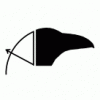-
Forum Statistics
22k
Total Topics486.7k
Total Posts
-
Who's Online (See full list)
- There are no registered users currently online
-
Sujets
-
Messages
-
By dennisherlok · Posted
Kenneth Merz, Ph.D., from Cleveland Clinic’s Center for Computational Life Sciences, along with his research team, is exploring the transformative potential of quantum computing in chemistry by combining quantum circuits with machine learning. Among the fields poised to benefit most from quantum computing, chemistry stands out due to the immense complexity and unpredictability of molecular interactions. To evaluate quantum computing’s ability to tackle these challenges, Dr. Merz and Hongni Jin, Ph.D., set out to test its performance in predicting proton affinity—a fundamental chemical property vital to many biological processes. What makes this study particularly significant is its reliance on actual quantum hardware rather than simulated quantum systems. Published in the Journal of Chemical Theory and Computation, the research demonstrates how quantum machine learning (QML) can outperform classical computing in simulating complex chemical phenomena. Using quantum gates and real quantum circuits, the team built a model capable of predicting proton affinity with greater accuracy than traditional approaches. Quantum computing differs fundamentally from classical computing. While classical systems operate with bits—binary units limited to 1s or 0s—quantum systems use qubits, which can exist in multiple states simultaneously. Quantum gates manipulate these qubits, enabling calculations that explore countless possible outcomes at once. This ability to process a vast array of potential states is especially well suited to chemistry, where molecular interactions are both highly variable and complex. https://github.com/ChrisHNE/kbzte39 https://github.com/DavidKEP9/Kbt934 https://github.com/PaulKBT/Kpt834 https://github.com/JeffRBt/Vrelk78 https://github.com/ChrisDNT9/pkdl9 https://github.com/DannyYAT/Pltr45 https://github.com/PeterKBN/Pkt9 https://github.com/CodyBLT/Dter46 https://github.com/DanielOBT/rxtd8 https://github.com/SteveWRB/kpfd9 https://github.com/RyanGSTR/plkt5 https://github.com/JeffRBT8/pkts59 https://github.com/MichaelBRTG/onkd5 https://github.com/RichardKVT/rkt5 https://github.com/CodyTNN/eklt5 https://github.com/NathanGKT/rcas5 https://github.com/TravisKNT/pkts https://github.com/SteveTSK9/pkx5 https://github.com/BradleyEGT/ctsk https://github.com/JoshGBT/HOCR To test this, the team focused on proton affinity in the gas phase—the tendency of a molecule to attract and retain a proton. Experimentally measuring this property is difficult due to the instability of many compounds when vaporized, making it a suitable benchmark for evaluating the capabilities of quantum computing. Dr. Jin noted that their quantum machine learning model was trained using 186 molecular descriptors. The team then compared the model's performance against classical methods. The hybrid approach that integrated both quantum and classical computing showed notable improvements in prediction accuracy. "This was one of our first deep dives into quantum machine learning," said Dr. Merz. "Machine learning has already proven useful in chemistry, especially for predicting molecular properties and reaction outcomes. Now, with quantum computing, we’re beginning to see how it can push past the limitations of even the most advanced classical supercomputers." This research represents an early but promising step toward using quantum-enhanced tools for solving complex chemical problems—opening new possibilities for drug discovery, materials science, and beyond. -
Faut dire aussi qu'avec le réchauffement climatique, il n'y a plus beaucoup de Bourguignons au Guatemala.
-
😅 Oui mais ça c'était "avant", quand le forum était plus vivant.
-
Et moi pour mon primitif take-down en osage, vu mon état il risque de ne pas servir avant un bon moment.
-
-
Today's Birthdays
-
Popular Contributors
Nobody has received reputation this week.






